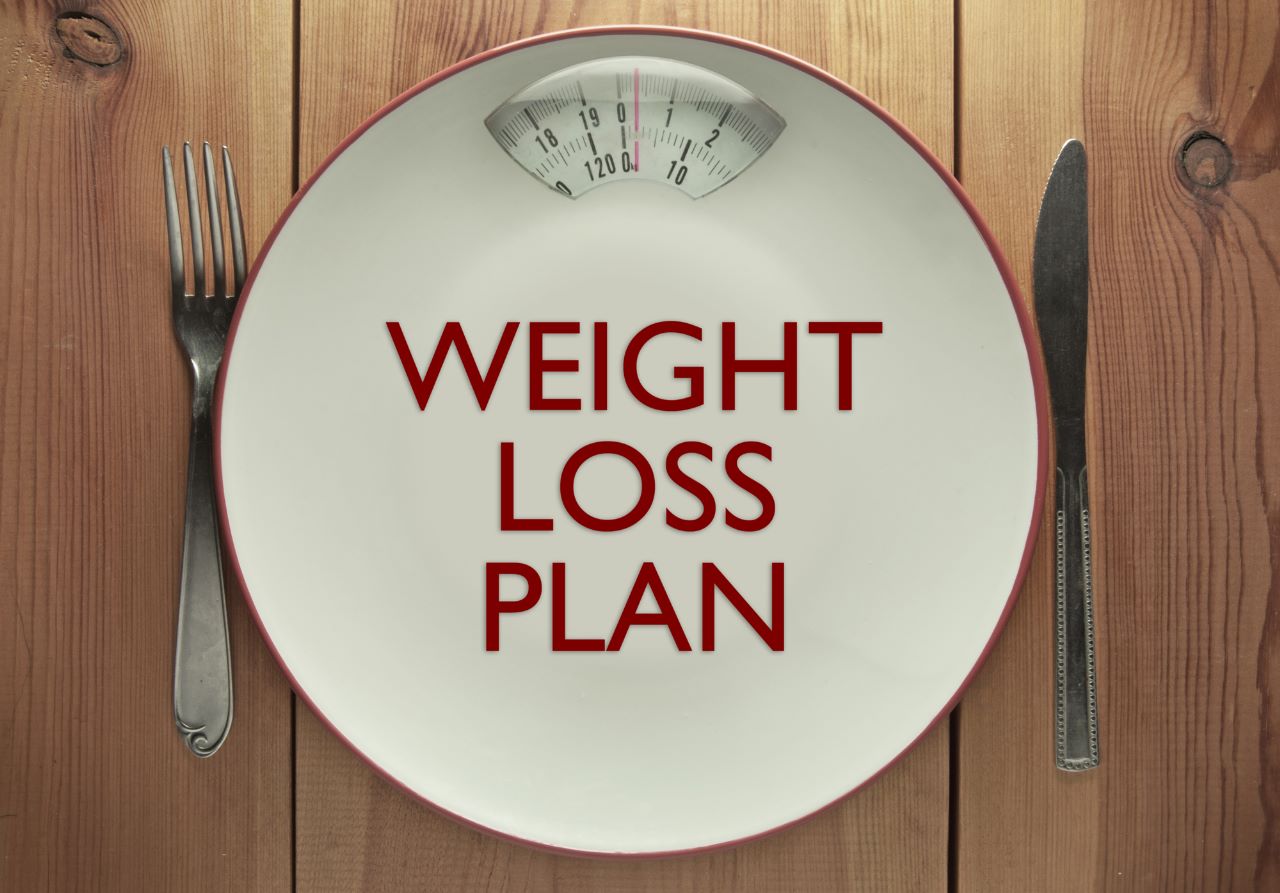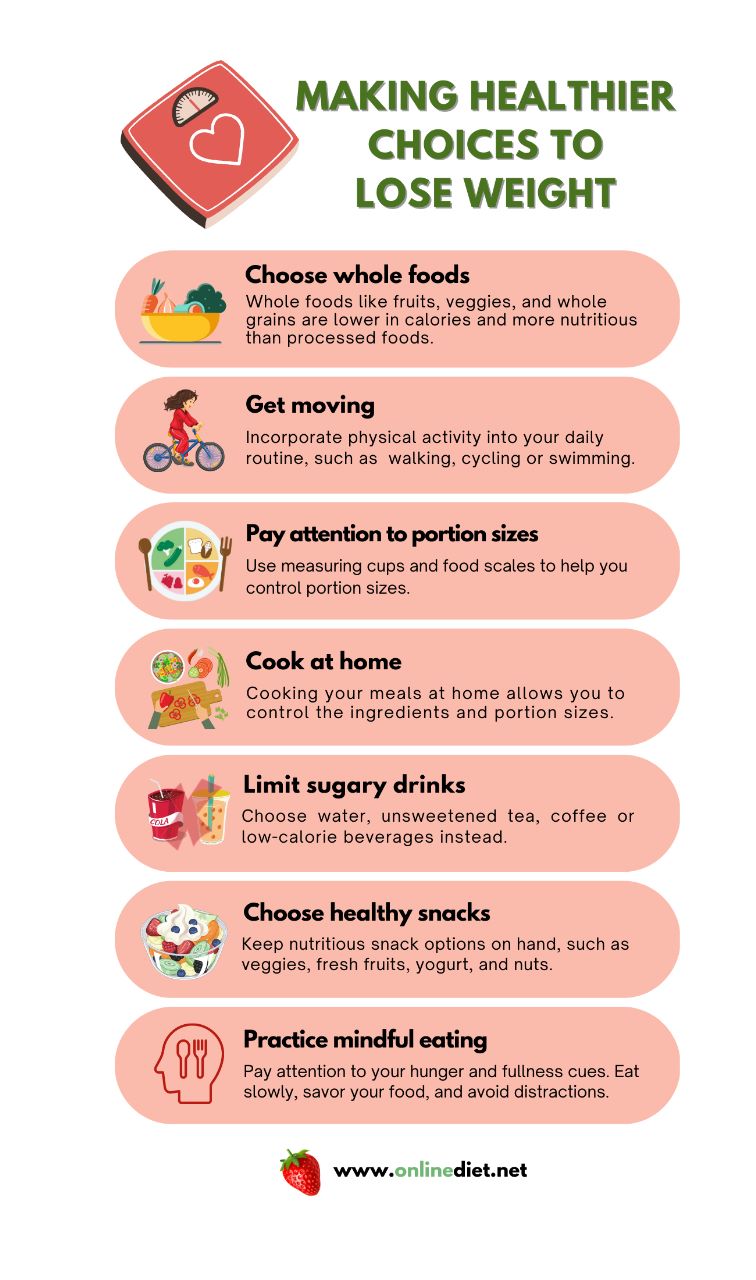Guide to Starting a Healthy Weight Loss Plan
You may want to lose weight to improve your appearance or for health reasons - and when it comes to losing weight, knowing where to start can be challenging.
A healthy weight loss plan is a comprehensive approach that involves making positive lifestyle changes to achieve and maintain a healthy weight. It includes a combination of healthy eating, regular physical activity, and other lifestyle factors like sleep and stress management. It should also be tailored to your individual needs, preferences, and lifestyle factors.
Keep reading if you are looking for tips to guide you on starting a weight management plan that meets your goals and supports your overall health and well-being.

8 Strategies for a Healthy Weight Loss Plan
Losing weight requires commitment and a well-thought-out plan. A healthy weight loss plan should aim to achieve sustainable and gradual weight loss through a combination of healthy eating and regular physical activity. Here are some strategies to follow:
- Set realistic goals
Losing weight too quickly can lead to muscle loss and health problems. Set achievable goals that are specific, measurable, and time-bound and reward your efforts along the way. For example, aim to lose 1 to 2 pounds (0.5 to 1 kilogram) per week over the next 12 weeks.
Remember, the rewards don't have to be big or expensive - they should be something that motivates you and keeps you on track. Setting short-term goals and rewarding your efforts along the way can help you stay focused and make progress towards your long-term fitness goals..
- Eat a balanced diet
While it may not necessarily lead to weight loss on its own, eating a balanced diet is important for overall health and well-being. A healthy weight management program should include a variety of nutrient-dense foods, including fruits, vegetables, whole grains, lean proteins, and healthy fats. These foods will help keep you feeling full and satisfied while providing your body with the nutrients it needs to function optimally.
- Track your food intake
Tracking your food intake can be a valuable tool for achieving your fitness goal. When you track what you eat, you become more aware of your eating habits and can identify areas where you may be consuming too many calories or not getting enough nutrients. Armed with this information, you can make targeted changes to your diet to support your weight management program. Use a food diary or a mobile app to track your food intake and monitor your calorie intake. This will help you make healthier choices and stay within your daily calorie budget..
- Create a calorie deficit
To drop the unwanted pounds, you need to burn more calories than you consume. You can create a calorie deficit by reducing your calorie intake or by increasing your physical activity. To create a calorie deficit through diet, you can reduce your overall calorie intake by making small changes to your eating habits. This can include choosing lower-calorie options, reducing portion sizes, and avoiding high-calorie, low-nutrient foods. To create a calorie deficit through exercise, you can increase your physical activity to burn more calories. This can include incorporating more physical activity into your daily routine, such as taking the stairs instead of the elevator or engaging in structured exercise such as walking, jogging, or weight lifting.
Creating a calorie deficit does not mean drastically reducing your calorie intake or engaging in excessive exercise. This can be unhealthy and unsustainable. It's essential to create a sustainable moderate calorie deficit that allows you to meet your nutrient needs while still achieving your weight loss goals.
- Stay hydrated
Drink plenty of water and avoid sugary drinks. Drinking plenty of water can help you stay hydrated, flush out toxins, and help you feel full, and reduce your appetite. Drinking water before meals may also help you eat fewer calories, as it can help fill up your stomach and make you feel fuller faster. Combining proper hydration with a balanced diet and regular exercise can help you achieve your fitness goals in a healthy and sustainable way.
- Increase physical activity
Physical activity is a vital component of a healthy and sustainable weight loss plan. Regular exercise can help you burn calories, improve cardiovascular health, and build lean muscle mass. Combining a healthy diet with exercise can help you drop the unwanted pounds while also improving your cardiovascular health, reducing your risk of chronic diseases, and boosting your mood and energy levels. This can be as simple as taking the stairs instead of the elevator, going for a brisk walk during your lunch break, or taking up a new physical activity such as swimming or yoga.
- Get enough sleep
Getting enough sleep is important for overall health and well-being, and it can also play a role in your fat-loss journey. Lack of sleep can disrupt hormonal balance, increase appetite, and lead to cravings for high-calorie foods, all of which can make it harder to lose pounds.
Studies have shown that individuals who get adequate sleep are more likely to maintain a healthy weight compared to those who are sleep deprived. This is because getting enough sleep can help regulate hormones that control appetite and metabolism, leading to better appetite control and improved energy balance.
- Seek support
Losing weight can be challenging, and having a support system can provide motivation, accountability, and encouragement along the way. Join a support group or work with a registered dietitian to help you stay on track and achieve your goals. Letting your family and friends know about your fitness goals can also provide accountability and encouragement. You may also find that others in your social circle are interested in making healthy changes, and you can support each other.
The goal of a healthy weight management program is to adopt sustainable habits that you can maintain over the long term instead of quick fixes or fad diets. While it can be a big challenge to lose weight, you do not have to make huge changes at once. In the next section, we will talk about simple choices that can help you shed unwanted pounds and feel and look your best.
Making Better Choices to Lose Weight
Getting started with a healthy weight loss plan can be daunting, but with a few simple steps, you can begin your journey toward a healthier lifestyle. Check out this infographic for some tips to help you get started by making healthier choices:

Making better choices can help you drop the excess pounds and improve your overall health. Remember, the key to a successful weight loss plan is to make sustainable lifestyle changes that you can maintain over the long term.
Benefits of Following a Healthy Weight Loss Plan
Following a health-centered plan for your fat-loss quest is beneficial for both short-term and long-term health outcomes. A healthy physique transformation typically involves making gradual, sustainable changes to your diet and physical activity habits to create a calorie deficit and promote weight loss. Consulting with a healthcare professional or registered dietitian can be helpful in developing a personalized program that is safe and effective for you.
There are many benefits to following a healthy weight loss plan, including:
- Improved overall health - Achieving a healthy weight can reduce your risk of developing chronic health conditions such as heart disease, diabetes, high blood pressure, and certain types of cancer.
- Increased energy levels - Maintaining a healthy weight can increase your energy levels, making it easier to be physically active and perform daily activities.
- Improved mood - Eating a balanced diet and engaging in regular exercise can improve your mood and reduce symptoms of depression and anxiety.
- Better sleep quality – Good nutrition and healthy lifestyle habits can improve sleep quality and reduce the risk of sleep apnea and other sleep disorders.
- Improved self-esteem - Losing weight can boost your confidence and self-esteem, leading to a more positive self-image.
- Increased longevity - Studies have shown that maintaining a good BMI can increase lifespan and improve overall quality of life.
As you can see, the benefits of a healthy weight loss plan go beyond just physical appearance. You can improve your overall health and well-being by making lifestyle changes that promote a healthy weight.
Start with small, achievable goals and build on your progress over time. Losing weight is not a quick fix or a one-size-fits-all approach. It requires a commitment to making sustainable lifestyle changes that promote a healthy body and overall well-being!

